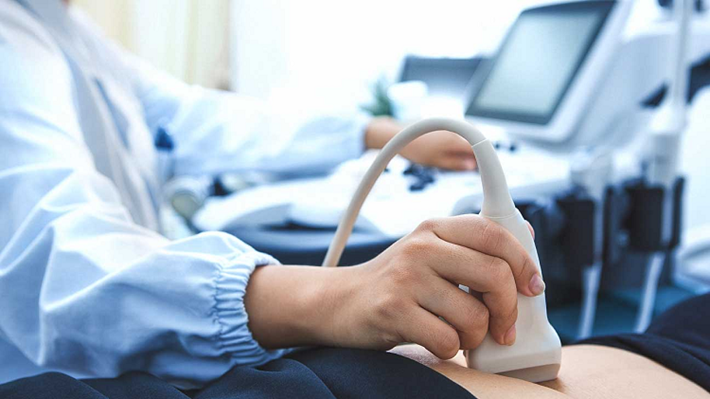Can congenital heart problems in the fetus be cured?
Congenital heart disease is a heart defect that develops when a baby is still in the womb and can affect a child's development.

12/11/2019 4:16:43 PM
According to many experts, congenital heart disease has an incidence rate of 8 cases per 1,000 births. In which, 2 cases need intervention in the first month after birth and 1 case needs intervention in the first week depending on the severity of the disease. So can fetal congenital heart diseases be completely cured?
1. What is fetal congenital heart disease?
Congenital heart disease is a heart defect that develops when a baby is still in the womb (around the first 3 months of pregnancy) and usually persists even after the baby is born. These defects occur due to factors that disrupt the formation of the heart and blood vessels. Some of the more common disruptive factors that cause this condition include:
- Pregnant women become infected with the virus in the first weeks of pregnancy.
- Pregnant women take drugs without the doctor's instructions.
- Pregnant women drink alcohol, smoke cigarettes, are exposed to toxic chemicals (pesticides, plant protection drugs.)
- Family history of cardiovascular disease.
- Certain genetic or chromosome mutations specifically affect many organs including the heart.
The infant with heart disease needs special care as soon as they are born
| Numerical Order | Disease | Common symptoms in children |
| 1 | Aortic stenosis |
|
| 2 | Pulmonary valve stenosis |
|
| 3 | And the ductus arteriosus |
|
| 4 | The Quartet of Fallot |
|
| 5 | Atrial septal defect |
|
| 6 | Ventricular communication |
|
2. Congenital heart ultrasound: Detect the baby's heart defects
All pregnant women should have an echocardiogram as directed by an obstetrician. Accordingly, fetal echocardiography usually gives accurate results at 17, 18 weeks, or later of pregnancy. However, with modern ultrasound devices, echocardiography can be done earlier, around the 12th week of pregnancy.
Statistics show that up to 90% of congenital heart problems can be detected through fetal echocardiography. Depending on the condition, the doctor will advise the best intervention solution, thereby significantly reducing the morbidity and mortality rate in newborn babies.
Although some heart diseases cannot be completely overcome, the results of ultrasound will also help parents stabilize their emotions as well as prepare financially and take better care of a child with a congenital heart.
Ultrasound detects most fetal congenital heart problems
3. Where should the mother take the fetal heart ultrasound in HCM City?
CarePlus is the address that you should not ignore when there is a need for fetal echocardiography. Operated by CityClinic Vietnam Co., Ltd. and 100% foreign capital, CarePlus International Clinics has gradually become a prestigious address with many choices for health care. In particular, the Department of Obstetrics and Gynecology of CarePlus possesses outstanding advantages such as a friendly examination environment tree and spacious medical facility with a series of modern equipment such as colposcopes, 4D ultrasound, imaging Digital mammography, osteoporosis meter, fetal heart monitor, spot lab for quick and accurate results, etc.
| Doctors | Experience | Strength |
| Dr. First Degree Specialist. Do Thi Cam Giang |
|
Pediatric Cardiology - Fetal Heart |
| Dr. Trinh Phuong Kieu |
|
Specializes in consultation and treatment of pediatric cardiovascular diseases |
Especially in the field of fetal echocardiography, there is the consultation and direct examination of leading doctors such as:
CarePlus obstetric services help monitor the development of the fetus in the womb under the guidance of the American Association of Obstetrics and Gynecology
Some fetal congenital heart problems can be completely cured if caught early. Therefore, pregnant women should carry out a fetal cardiac screening test when advised by a doctor.
-------
For more information about obstetrics and gynecology services or making an appointment, please contact CarePlus via:
- Hotline: 1800 6116
- Email: info@careplusvn.com
- Fanpage: CarePlus Clinic Vietnam